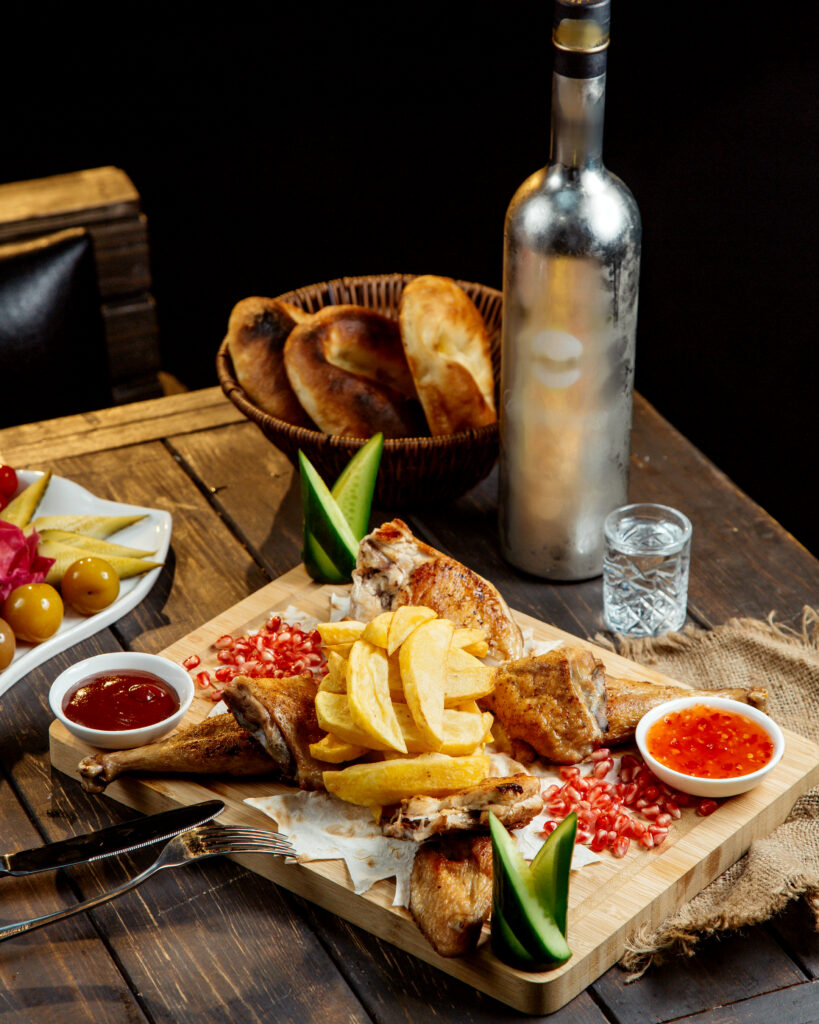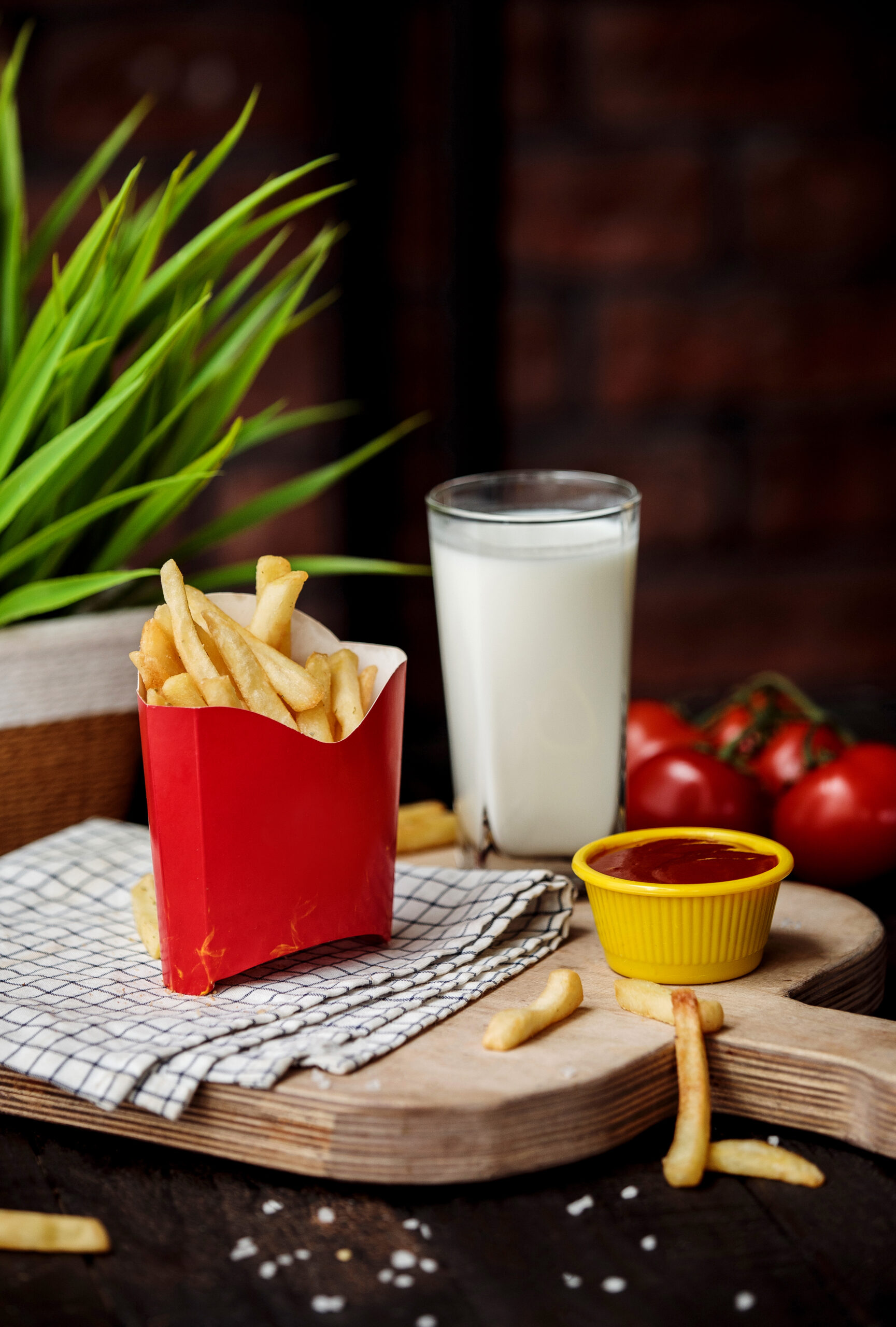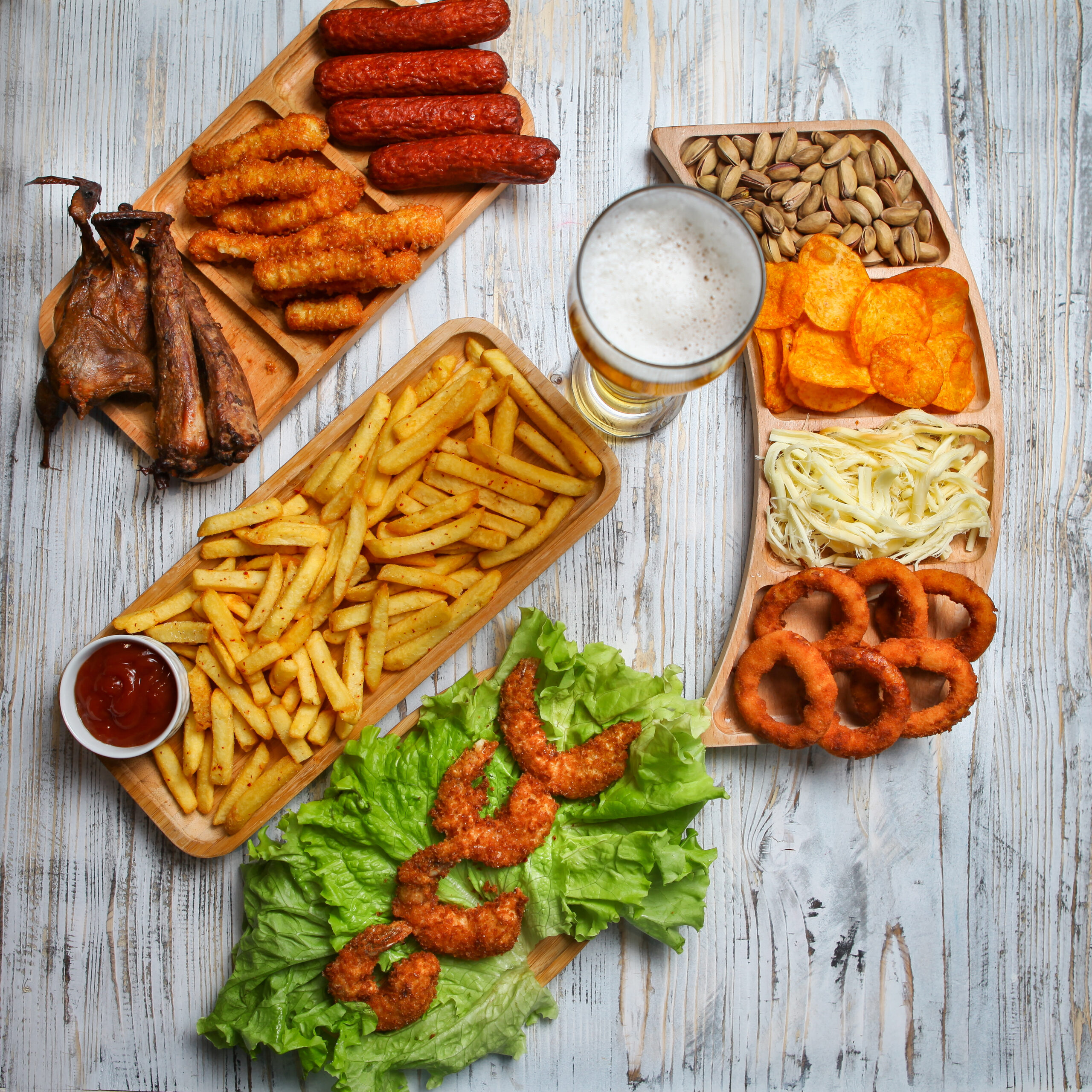Here we are going to share information on the blog topic “Say No to These 10 Cancer-Causing Foods.” In a world where our dietary choices play a crucial role in our overall well-being, it’s essential to be mindful of what we consume. The connection between certain foods and the risk of developing cancer has been the subject of extensive research. In this blog post, we’ll delve into the topic of cancer prevention by exploring 10 common foods that are associated with an increased risk of cancer. By saying no to these cancer-causing foods, you can take a significant step towards fostering a healthier lifestyle. Join us on this informative journey as we emphasize the importance of making informed choices and understanding the impact of our diet on our long-term health. Say No to These 10 Cancer-Causing Foods. Let’s repeat this mantra and empower ourselves with knowledge for a better, cancer-free future.

- The disease cancer is complicated. Cancers come in a wide variety of forms, and there are numerous possible causes. While there are still many unanswered questions, we do know that a number of factors can lead to the development of cancer.
- There are genetic and familial components. However, outside variables over which you may have some control, such as your lifestyle choices, have a greater influence. Indeed, studies indicate that environmental variables account for 80–90% of malignant tumours.
- Your nutrition is one of the most crucial lifestyle elements to take into account. This is due to the fact that numerous studies have demonstrated a link between specific meals and an increased risk of developing particular cancers.
- In this piece, we’ll examine in more detail a few particular foods and drinks that may raise your chance of developing cancer, as well as the scientific data supporting this association.
Say No to These 10 Cancer-Causing Foods
Foods that cause cancer
Certain foods are linked to an increased risk of obesity and type 2 diabetes, both of which are linked to specific forms of cancer. Carcinogens are dangerous compounds that have the potential to cause cancer and are present in some foods.
It’s important to remember, though, that cancer is not necessarily the result of carcinogen exposure. In addition to the degree and length of exposure to the carcinogen, genetics also play a role.
In light of this, let’s examine what has been found in studies regarding the foods that may raise your risk of developing certain cancers.
1. Processed meats
Any kind of meat that has undergone canning, curing, smoking, or salting is considered processed meat. In processed meats, red meats predominate. Here are a few instances of processed red meat:
- Hot dogs
- Sausage
- Ham
- Corned beef jerky
Carcinogens may be produced by the processes used to produce processed meats.
- For instance, nitrite-curing meat might result in the formation of carcinogens known as N-nitroso compounds, as per a 2018 article by Trusted Source. Moreover, smoking meat can produce polycyclic aromatic hydrocarbons, which are carcinogenic (PAHs).
- A 2019 review A trusted source found that eating processed meat increases your chance of developing colorectal cancer. Additionally, a different 2019 review A trusted source discovered a connection between it and stomach cancer.
- Researchers found that eating a lot of processed meat was linked to a higher risk of breast cancer in a 2018 review Trusted Source.
2. Fried dishes
- Acrylamide is a substance that forms when high heat are applied to starchy foods. This may occur during roasting, baking, toasting, or frying.
- Acrylamide content is particularly high in fried starchy meals. This includes foods made from fried potatoes, such as potato chips and french fries.
- Acrylamide has been linked to cancer in rat experiments, according to a 2018 reviewTrusted Source. As per the International Agency for Research on Cancer (IARC)Trusted Source, there is a possibility that it could cause cancer in humans.
- Acrylamide causes DNA damage and triggers apoptosis, or cell death, according to a 2020 study.
- Consuming a lot of fried food also raises the danger
- Reliable source on obesity and type 2 diabetes. These circumstances may exacerbate inflammation and oxidative stress, which raises your risk of cancer even more.
3. Overdone meals
- Foods that are overcooked, particularly meats, might release carcinogens. One 2020 articleTrusted Source claims that high heat cooking produces heterocyclic amines and carcinogenic PAHs in meat (HCAs). These drugs have the potential to modify your cells’ DNA, which could raise your risk of cancer.
- Cooking at high temperatures or over an open flame increases the risk of overcooking meals. This covers techniques for cooking such as grilling and barbecue. -frying
The FDA
- Furthermore, according to Trusted Source, overcooking starchy meals like potatoes causes more acrylamide to develop.
- Cooking with high heat can expose you to carcinogens; to lower your risk, try utilising healthy techniques like:
- pressure-cooked poaching
- cooking at a lower temperature or roasting
- using a slow cooker or crock pot for gradual cooking
4. Dairy
Research suggests that dairy products may raise the risk of prostate cancer.
Foods made from dairy include things like:
- milk
- cheese
- yogurt
A 2014 review Trusted Source states that consuming dairy raises the amount of an insulin-like growth factor 1. (IGF-1). Prostate cancer risk is raised as a result of this. Prostate cancer cell formation or proliferation may be accelerated by IGF-1.
5. Refined sugars and carbs
Refined carbohydrates and sugary diets may indirectly raise your risk of cancer.
These foods include, for instance:
- Drinks sweetened with sugar
- Baked products
- White bread, white pasta, white rice, and sweet cereals
Consuming an excessive amount of sugar-filled, starchy meals may raise your risk of obesity and type 2 diabetes. A 2020 study (Trusted Source) found that both disorders increase oxidative stress and inflammation. This could make you more susceptible to some cancers.
Type 2 diabetes raises the risk of ovarian, breast, and endometrial (uterine) cancer, according to a 2019 review Trusted Source.
High blood glucose levels can result from consuming a lot of sugar and processed carbs, and a 2017 study (Trusted Source) suggested that high blood glucose may be linked to an increased risk of colon cancer.
Try replacing these items with healthy options like: to reduce the negative health consequences of refined carbs.
- whole grain bread
- brown rice oats and whole grain pasta
6. Tobacco
- Alcohol is broken down by your liver into the carcinogenic substance acetaldehyde when you drink.
- A 2017 review published on Trusted Source claims that acetaldehyde encourages oxidative stress and DNA damage. Additionally, it disrupts immune system function, which makes it harder for your body to attack malignant and precancerous cells.
- A study published in 2015 (Trusted Source) found that women who drink alcohol have higher body levels of oestrogen. An increased risk of oestrogen receptor-positive breast cancer is associated with this.
7. Deep-fried foods that can cause cancer
- Consuming certain deep-fried meals on a regular basis, such as doughnuts, fried fish, and French fries, is associated with an increased risk of prostate cancer.
- When food is deep-fried, especially carbohydrate-rich meals like potatoes, acrylamide is created in greater proportions. Acrylamide has been classified by the International Agency for Research on Cancer as a likely human carcinogen.
8. Extremely hot drinks
There is a connection between the risk of esophageal cancer and consuming hot drinks (such coffee and tea) at temperatures higher than 149°F or 65°C.
9. Salted fish
- In Asian regions, salting is a traditional technique for preserving fish. Compounds nitrosamine and N-nitrosodimethylamine are produced during the preservation process of fish salted in the Cantonese style.
- These drugs may make stomach and nasopharyngeal cancer more likely. Additionally, meals preserved with salt may raise the risk of stomach cancer by encouraging the H. pylori bacteria to colonise the stomach.
10. Organisms with altered genomes (GMOs)
Research shows a link between the growth of malignancies and genetically modified organisms (GMOs) and the chemicals employed in their cultivation.
Conclusion
Say No to These 10 Cancer-Causing Foods
In conclusion, let’s reiterate the importance of informed choices and the impact our diet can have on our well-being. Say No to These 10 Cancer-Causing Foods – a simple yet powerful mantra that encapsulates the essence of our journey. Remember, the choices we make today can influence our health tomorrow. Embrace a diet rich in nutrients and devoid of harmful substances to pave the way for a future free from the shadows of cancer. Your health is your greatest asset, and by making conscious decisions, you take charge of your well-being. Here’s to a vibrant, cancer-free life!

Frequently asked questions
Say No to These 10 Cancer-Causing Foods
What is the number 1 cancer causing food?
Answer: Lamb, veal, beef, and pork are examples of red meat. Bacon, ham, lunch meats, meat jerky, hot dogs, salami, and other cured meat products are examples of processed meat. The two foods most closely associated with an increased risk of cancer are processed meat in any quantity and more than about 18 ounces of fresh meat per week. alcoholic drinks.
What foods are high risk for cancer?
Answer: Five drinks and foods that may cause cancer
meats in red. Processed meats, including beef, hog, venison, and lamb, have been connected to colorectal cancer, according to Tatum. Processed meat is another type of meat that has an increased risk of cancer. Alcohol.
excessively processed meals and beverages.
foods and beverages with sugar added.
How can I fight cancer fast?
Answer: Enhancing immunity to combat cancer Researchers found that stem cells may be shielded from the damaging effects of chemotherapy on the immune system by fasting for two to four days. Additionally, immune system stem cells that are activated during fasting help the body heal and regenerate.
What is 90% of cancer caused by?
Answer: Environmental factors account for 90% of cancer cases.
What kills cancer cells in the body naturally?
Answer: Top 5 Foods That Efficaciously Fight Cancer
vegetables that are cruciferous. The Brassicaceae family of vegetables includes beets, radish, cabbage, cauliflower, broccoli, Brussels sprouts, and mustard greens. Other members of the family include green leafy vegetables, garlic, tomatoes, and berries.
How does cancer starts?
Answer: Certain alterations to genes, the fundamental building blocks of heredity, result in cancer. Chromosomes are lengthy strands of closely packed DNA that contain all of the genes. Cancer is a genetic illness, meaning that alterations to the genes that regulate our cells’ growth and division are what cause it.
Can stress cause cancer?
Answer: According to Sood, stress hormones can impede the anoikis process, which destroys sick cells and stops them from proliferating. Prolonged stress also boosts the synthesis of certain growth factors that expand your blood volume. He continues, “This can accelerate the growth of malignant tumours.”

